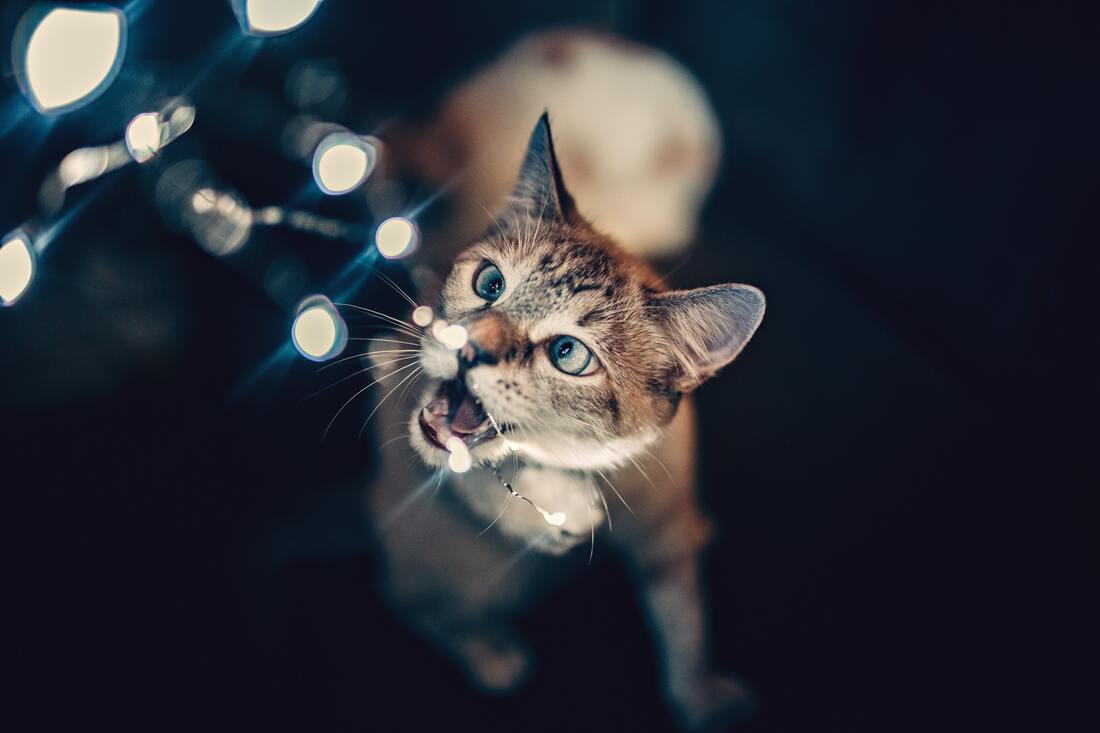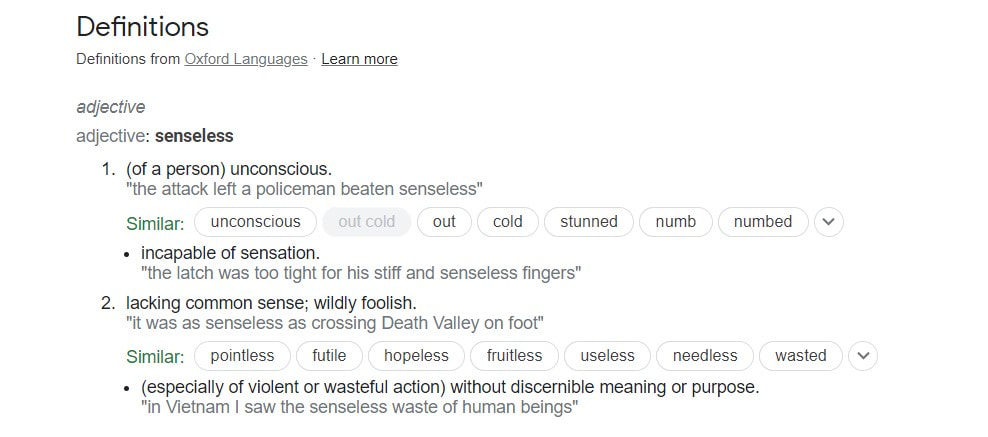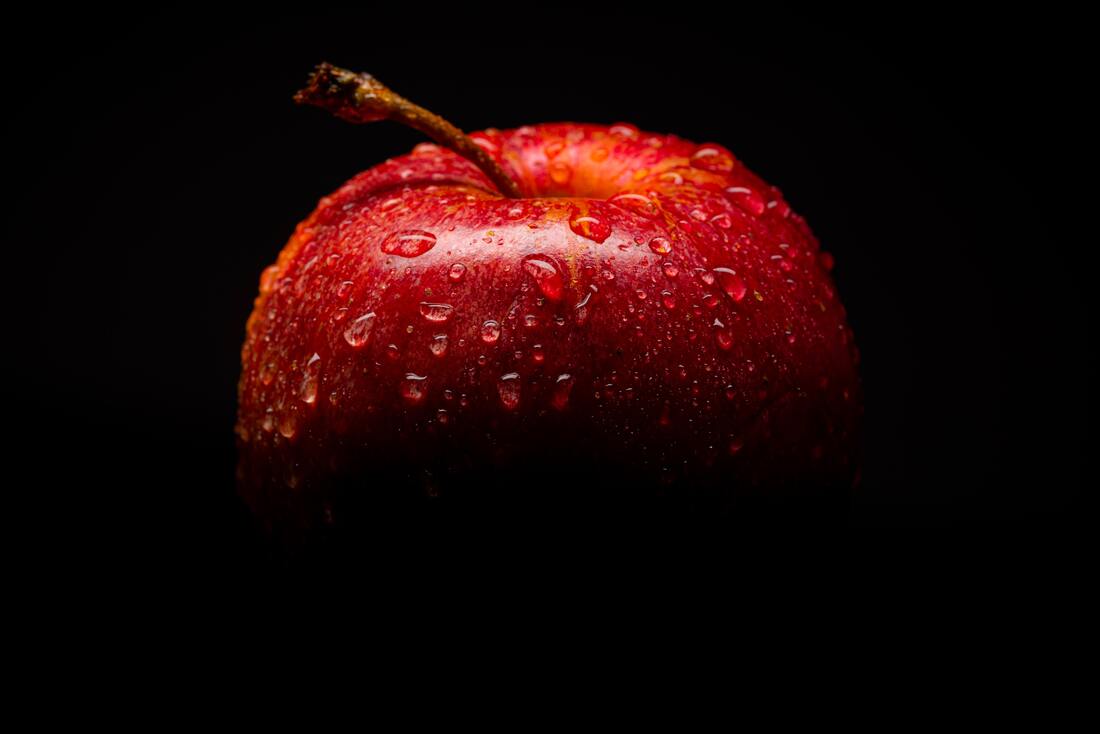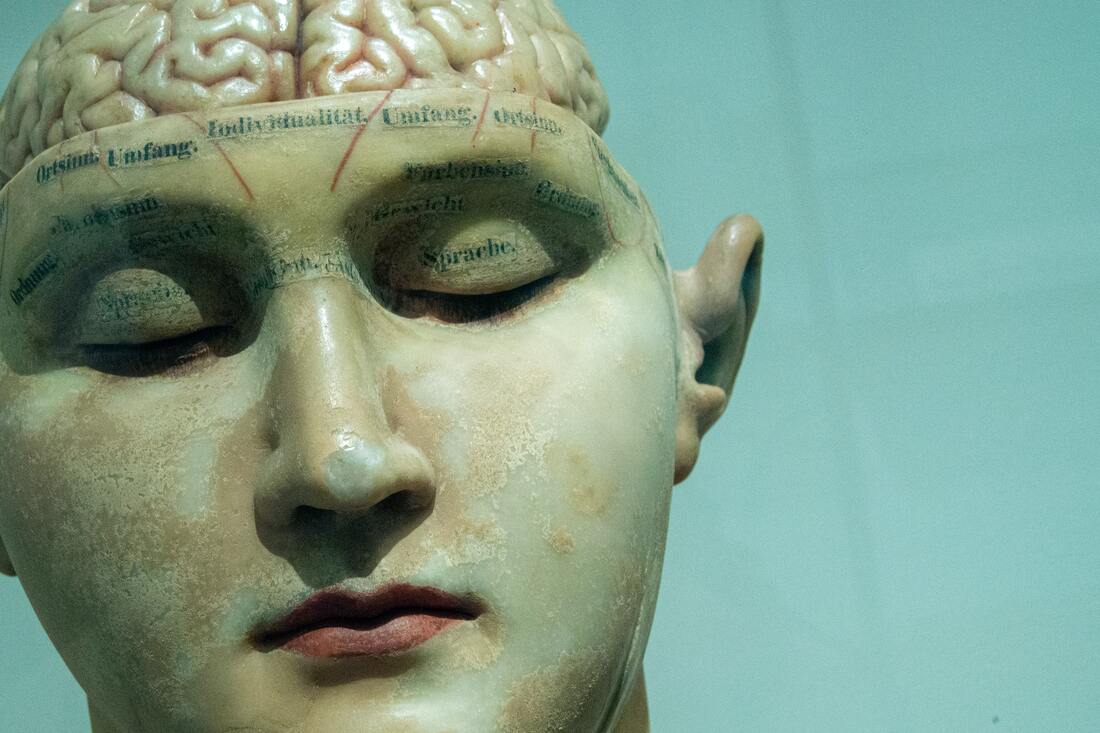|
*I have three hypertext projects going on at this point, and I felt that they needed an intro page. The result is below! I like this picture, because it is interesting and confusing at the same time. I hope that readers will find my hypertext projects equally intriguing as they ask themselves: "What is going on here?".
Hypertext book is a nonlinear format that requires a digital form and a number of pages/entries connected through links. After publishing a print book, I realized that there are just too many ideas and directions to explore. So, I decided to explore them all simultaneously! Once in a while, I complete a page. But most of the time (when I have time to write), I organize my ideas in existing draft entries, of which I currently have dozens and may have hundreds in the future. (The only one of the three projects without draft entries is It's Not about "Them" on Medium, where I decided to try a different approach.) Let's be honest, the result will surely look messy to an outside observer. My commitment to vulnerability allows me to show my raw creative process to strangers, but it's not easy (especially because I am also a freelance editor, and editors are not supposed to be messy with their writing). So, what are the three projects I am talking about? One focuses on issues of meaning, the other one is about power, while the last book that I started is dedicated to polarization. In my mind, these three topics are interconnected. However, I found that it's useful to separate them in order not to smash everything together (said the person who decided to explore all of her ideas at once). But, seriously, there is order and there is logic in my explorations - only I find a traditional linear format too restrictive for my intellectual journey. The hypertext format helps me keep track of my ideas, to continue writing even when I have little time for creativity, and to collect materials for future print books. I do want to convert my work into linear texts eventually. In the meantime, I will let my hypertexts grow in the most perfectly imperfect way possible. As for the picture above, I will tell you what it is! Back in the summer 2019 (oh, sweet pre-Covid times), I travelled to the United Kingdom with my family. There, we visited Cambridge (we actually lived there for a couple of weeks). The picture shows one of the old cathedrals. It had an area with huge mirrors that reflected the ceiling so that visitors could see it better. (I am thinking now that they may have been showing a model of the ceiling, which adds another layer of confusion to the image.) You can see me bending over the railing in order to take a picture of the reflection (of the model?) and the surrounding walls. It's still hard to make sense of what is going on, but it was surely beautiful to observe. In a similar way, my hypertext books are about capturing the beauty, complexity and confusion when it comes to the big questions of human coexistence.
0 Comments
*New entry from my project POWER of meanings // MEANINGS of power.
The word synesthesia comes from a Greek phrase meaning "perceive together". Synesthesia can be described as an ability or a condition, but it is not a disease. Depending on the type of synesthesia that a person has, she may "see" music, "taste" sounds or "hear" scents (there are many more variations). I find it enjoyable, although the associations can be frustratingly difficult to describe. It's mysterious, because the origins of the connections between different sensations are often hard to explain. For example, I do not know why "A" is distinctively yellow for me, while "M" is raspberry red and "B" is green. Well, perhaps "M" is raspberry red because malína is "raspberry" in Russian, my mother tongue, but it's impossible to know for sure. As a synesthete, I find the word "power" (in English) intriguing: it is scary and gloomy, but also playful and darkly attractive. My fascination with this word started when I was working on my first print book Media Is Us. In one of the chapters, I proposed a new theory, which has become a basis on the project I am developing on this website. Since I finished writing that book, I enjoy seeing the word "power", writing it, saying it in my head. I kid you not, it is even more exiting now to turn off my computer, because I see the word and its symbol on the screen! It's a kind of a safe obsession, which is probably not unique in scholars focusing on a particular topic. So how exactly do I perceive "power" from a synesthete's point of view? It is very difficult to properly describe, but I will try. First, power is a dark word. I see a lot of black, but also some strange glow or flashes of light. "Power" is a paradox: it is soft and springy like a cat playfully hitting with its paw a toy that is bouncing: pow-pow-pow. The game looks like fun, but there is a dangerous glow in the cat's eyes. Any moment, the gentle purring will turn into a subdued but distinctive growl – errrrr – and the toy that was being gently bounced a second ago will be shredded to pieces by the animal's claws. The word "power" is at the same time soft and sharp, calming and dangerous. In this particular case, the origins of my associations seem easier to trace. At least, I can see parallels between them and my developing thoughts about power. It is a dark and scary word because power can and does often cause discomfort, even suffering. It is also a complicated word, because power can be positive: I have power to heal and to help others. I perceive power as a paradox, both intellectually and synesthetically. People often think about power as a binary – either you have it or you don't. But I want to focus on how we all have and lack power at the same time, because it is not one something, but rather a combination of abilities and circumstances (see What is power?). *This is an updated entry from my hypertext book Me, Looking for Meaning.
To be honest, I am not really losing my sanity. Many people have been dealing with actual mental health problems, but not me. I decided to keep this wording, because it will allow me to discuss (elsewhere) that human communication is often nonliteral. At the same time, I acknowledge that somebody with an actual mental health condition may be upset to see words like "crazy" used for emphasis. When people ask me how I am doing, my response is often "ok, thanks", and it is not a lie. Being an optimist, I prefer to focus on the fact that I am surviving and often even thriving. I do not like complaining; talking about things that go well helps me feel stronger. But my life is not without its share of struggles. It is important to address the most prominent of them here, as they affect my thinking and writing. These challenges change over time, and the current page will be sometimes updated accordingly. I started this book in February 2021, almost a year after coronavirus had been pronounced a pandemic. Neither me or anybody in my immediate family have been seriously ill. Technically, my main needs are met: I have food, I am safe, I am with my family, and I even have some time for self-actualization (that is, for writing). Yet, things are not always easy. Plenty has been said about the difficulties experienced during the pandemic by parents of small children (or any children, for that matter). In the beginning of 2020, our sons Robin and Sky were 3,5 and 1,5 years old respectively. Sleep was still a big issue. All daycares closed in March 2020, so I did not have much time to relax for a while, both during the day and at night. Things got a bit better that fall, when we started inviting babysitters. However, I have been affected by sleep-deprivation until very recently, as Sky had problems sleeping at night till spring 2022. Same as most other people, I do not like being stuck at home without an opportunity to spend time with friends or to change a scenery. In the winter 2021, the pandemic was in its second round (the delta variant). Between the kids and coronavirus, it was difficult to engage in any "normal" activities: going to a restaurant or a museum, shopping, etc. On top of that, I missed my mom. She lives in Russia and used to spend time with us 1-2 times a year. Her last visit was in November 2019. In February 2021, I was also in the middle of a major career change filled with uncertainty. I decided to leave academia, but did not know yet what to do with my life. An identity crisis triggered by the career change overlapped with a more positive development: my first print book Media Is Us was being prepared for a publication date in the summer 2021. I was leaving academia, but I wanted to continue my writing and research. This was the first time I started calling myself a writer - a writer and a scholar, to be precise. Working on a hypertext book came to me as a "crazy" idea, but it made a lot of sense at the time when I wanted to explore my thoughts in a space unconstrained by standards of academic establishment. I am working on this update six weeks after Russia invaded Ukraine. Same as with coronavirus, me and my immediate family in the United States have not suffered from this crisis. However, the war has affected me on a very personal level. I identify myself as Russian, but I have relatives in Ukraine. I am horrified by Russia's actions, embarrassed by atrocities committed by the country where I was born. On top of that, I am saddened to acknowledge that my mother has been affected by Russian propaganda. On bad days, I dwell on the fact that I cannot talk to her about the war, and that I do not even know when I will see her again. On good (or better) days, I use this new crisis as an inspiration for thinking about empathy, communication and power. I am a lucky and privileged person. I know that many people have had it much worse than me. To tell you the truth, I feel somewhat guilty describing my challenges. This page reflects my attempts to find a balance between acknowledging that things are not always easy for me and being grateful for what I have. *New entry of my hypertext book Me, Looking for Meaning. Notice how negatively the following words and phrases sound: "meaningless", "senseless", "pointless", "What's the point?", "It does not make any sense!". The lack of meaning is a source of confusion, frustration, fear and concern for us, human beings. How does this work? Example #1: I am afraid that my work is meaningless, that my life is pointless. Seriously. I do not think these thoughts all the time, but, to be honest, they do cross my mind once in a while, especially when I am tired, not feeling well, or if something has happened that I feel sad or angry about. I am writing this "experimental hypertext book" and the other one, on power. My writing is important to me, it helps me develop my ideas and to keep my sanity. But then, sometimes I wonder: does this even matter? Today, so many people are writing down and sharing their thoughts all the time. Who will notice what I am trying to say (especially now that I have left social media)? And even if they do notice, will anybody think that I am saying anything new and worth considering? And even if they think so, will they be right? Since I consider myself a writer, if my books do not matter, this may mean that my whole life does not matter in the grand scheme of things. Like so many other people before me, I will just “come and go”. One day, all my memories, opinions and ideas will disappear, and after a while nobody will even care... To be clear, most of the time I am not thinking this way. Otherwise, I would probably not be writing at all. This is just an example to show you how negative it is to focus on the potential meaninglessness of something. By the same token, you can think about times when the question “What’s the point?” overwhelmed you, whether you were thinking about a specific thing you were doing in that moment or about your whole existence. If you analyze your thoughts like I do above, you will probably also discover that such questioning happens when you are experiencing negative emotions or physical discomfort (emotional pain and physical pain may seem different, but they are very much alike). At times of distress, finding meaning becomes particularly difficult. Example #2: What kind of actions do we call "senseless"? According to the Google dictionary (powered Oxford Languages), "senseless" stands for "lacking common sense" and "wildly foolish". Proposed synonyms include "futile", "useless" and "wasted", with an example being "it was as senseless as crossing Death Valley on foot". A senseless act is something that a smart or sane person would avoid by all means. Crime, violence and cruelty are bad enough, but what if they are also "senseless"? They become even worse! Who knew that it is possible?? Imagine an army of invaders killing soldiers who are defending their land. This is a kind of violence that most people would condemn. Now, imagine an army of invaders killing civilians who cannot even properly defend themselves. We are reading news and pulling out our hair: "Why? Why? WHY??". This is just so senseless. It hurts so much to think about this violence - and it does not even seem to help the invaders get closer to victory! If anything, it may even hurt them. When the defending army finds out about the atrocities, the anger will energize its soldiers, making them more determined and more brutal.
Senseless actions mark a person who is "crazy", who "lost it" and became a menace for himself and others. You cannot deal with such a person because she probably does not clearly understand her own actions. Your best bet is to stay away from a senseless person because you cannot predict what she will do next. It can be something that will put you in danger. Our common sense tells us that anybody who regularly engages in senseless actions should be avoided by all means. We rely on our common sense to detect those who seem to lack it. Example #3: When we try to understand something and end up exclaiming: “It does not make any sense!”, it’s because we are frustrated and confused. Why did the architect make a functional door in the roof? Why is this restaurant open only one day a week? Why did I get a ticket for speeding when everybody on this road goes over the limit? (The last question is not about me - I do not really drive.) As much as we are looking for an explanation that would fit our logic, it does not seem to exist. We are observing something that does not have a clear purpose or fit any reasonable rule; something that is unnecessary, unfair or unproductive. Same as with a person who engages in senseless actions, something that does not make sense must be avoided. It can be dangerous or cause us troubles without giving us anything positive in return. Take a door in the roof located in a way that one cannot actually use it to get in and out of the house. It may not hurt us, but it will probably leak when it rains or snows. And nobody will be able to enter through it anyway! It's not even that interesting as a decorative detail, because it will be difficult to see from the street. This whole house may be worth avoiding. If somebody decided to add a door in this unusual location, who knows what other strange decisions this person made about the layout and functionality of the building? Because things outside of the norm make it difficult for us to know what to predict, we may choose to bypass them altogether. They are not to be trusted. *** We do not like when something lacks meaning. The examples above should make it clear. However, they do not make it obvious where "meaninglessness" comes from. It is easy to see it as an intrinsic quality of something or somebody. When I am upset enough to consider that my life may be pointless, I truly believe in this possibility. When I see somebody's actions as senseless, I honestly do not see their point. This perception is a mistake connected to people's confusion around meaning-making vs. meaning-seeking. Meaninglessness is not a quality, it is a way to see something, to describe it while showing our dislike, disapproval, discomfort and condemnation. This may sound counterintuitive, but a lack of meaning is a kind of meaning we ascribe to people and things. Let's revisit the examples offered above: Example #1: One day we may think that our life is meaningless one day, but we are often able to see the same life differently when we feel emotionally and physically better (people suffering from a depression cannot switch their perspective back and forth - this is a nature of their disease, but not the nature of their life). A life event that is meaningless to one person (e.g., an accident) can be interpreted by another person as an act of god, a sign of a pattern, a way for the universe to restore justice, etc. Example #2: Every senseless act has an explanation. By calling it "senseless", we reveal our values and our logic. For one person, it may be senseless to cross Death Valley on foot, but for another one it's an adventure, a challenge, an experiment. Senseless violence can be explained (which is not the same as excusing) if we learn more about the person engaging in it. We might want to spend our energy learning about the perpetrator, but this is a matter of our choice. Senseless war crimes can be, unfortunately, part of a military strategy (e.g., killing civilians > infuriating defending soldiers > justifying aggression of attackers as self-defense). Example #3: The fact that we do not understand the reason for something is - to put it in the most cynical way - our problem. For somebody who sees the same situation from a different perspective it may not be a problem at all. By saying that something does not have a point - like a door in the roof or a restaurant that is open only once a week - we confess that we do know enough about the thing we consider pointless. Meaninglessness is a meaning, it is an outcome of our perspective. Understanding this can allow us to acknowledge our subjectivity and will give us power explore other points of view. *This is an entry of my hypertext book POWER of meanings // MEANINGS of power. Obviously, one can look for a definition of power in a dictionary. For example, here. However, understanding this concept requires more than just reading a Merriam-Webster entry. Many scholarly books have been written about power. This page will reflect my attempts to come up with my own working definition. The focus here will be on what I call "social power" which exists through people's actions and relationships. Power in the “social” sense is different from other meanings of this word, such as magnification or an order of angels in Christianity. (I believe that it is worth exploring the meanings of power that are not directly related to people and relationships between them. Arguably, such exploration can help us better understand how human beings make sense of themselves, for there must be a reason why the word “power” acquired these additional meanings.) When we think about social power, some words that come to mind are: ability, capacity, authority, control and force. (These synonyms of power deserve a separate investigation.) They can be roughly associated with two different aspects of social power – ability and influence. These two aspects do not really exist apart from each other, but can be viewed separately for the purpose of my analysis. To be more precise, "ability" and "influence" are two different angles one can take when looking at power. The first aspect provides the focus on the individual: what he/she can do. The second aspect provides the focus on relationships between people: how an individual's actions affect others. 1) We can view power as one's ability unrelated to other people's abilities and actions. "Ability" is a fundamental aspect of power. It is telling that in some, but not all, languages the word power has the same root as the verb can. We will start start by talking about physical abilities. They can be roughly divided into abilities of body and mind (this division is a simplification, because our mind is a function of the brain, which is a part of the body). Some of these abilities are sometimes called "power", but other are not. For example, we can see references to "the power of sight", such as in the following statement: "The power of sight is often taken for granted, but it greatly affects a person's quality of life". On the other hand, although the walking is also a physical ability, such phrase as "the power of walking" seems to make less sense. Why can we view physical abilities as unrelated to other people's abilities and actions? It is possible, because a person can have this power and use it regardless of whether somebody else can or cannot do that. "Seeing" or "walking" is not a limited resource. For me to be able to see or walk, I do not have to take something from others. (Interestingly, fictional narratives can have an antagonist who steals somebody else's energy in order to support one's own physical abilities.) Thinking physical abilities as power allows us to talk about intentionality. Indeed, power comes not just from having an ability, but from using it in a certain way, which requires as intention. There is a difference between passively watching and actively seeing. Intentionally using our physical abilities is fundamental for being human, or, more specifically, for being a living human being. A person whose body fulfils basic physical functions without intentionality is as good as dead, because this person does not have an ability to act (see Power on/off). Viewing power as physical abilities unrelated to other people's abilities and actions is crucial for two additional reasons. First, it's important to discuss how we take most of our physical abilities for granted – until we lose any of them, that is (see Privilege). Second, in some cases, power understood as a physical ability does become related to other people's abilities, often in ways that go unnoticed for those who have power (e.g., the power of speech). Thinking about intentionality allows us to consider how abilities are used and how they can be improved through learning. This, in turn, allows us to see the following three levels related to what our bodies/minds can do: Level 1: Bodily function that exists without intentionality and cannot be improved. A person with brain damage in a vegetative state can have his eyes open without seeing. Level 2: Intentional use of this bodily function becomes an ability. I choose what I look at and react to what I see. Level 3: Understanding how the ability works allows me to hone my skills. I can train myself to notice certain things, to cognitively process what I see in a specific way, etc. Only the second and the third levels can be seen as power, because they are associated with things we can do. Another example: We do not talk about the "power of breathing" when we discuss the bodily process that is indispensable for being alive. However, we can talk about purposefully practicing different ways to breathe: for example, slowing down or focusing on our breathing as part of a meditation. In this case, it makes sense to talk about the power of breathing, as we choose to breath in a certain way. Because power is impossible without intentionality, understanding power requires exploring the concept of free will. Thinking about physical abilities as power that requires intentionality means considering our choices. Indeed, one can choose to use her physical abilities in a certain way. That's what makes them abilities and not simply bodily functions. I can choose to see some things but not others, to speak over other people, to walk in a certain direction in order to achieve specific goals. I can also choose to view my abilities as skills that require improvement (e.g., breathing). So far, all the examples above were about physical abilities of our bodies: seeing, speaking, walking, breathing. These abilities are more visible that what we can call "mental abilities" (same as physical disabilities are more visible and taken care of than mental ones). Remember that mental abilities are just a type of physical abilities, since the brain is a part of our body. Below, I will compare physical abilities and mental abilities, keeping in mind that this division is artificial. It's easier to talk about physical abilities because their outcome is often visible and directed outward. For example, I can have the power to lift a heavy rock. In contrast, mental abilities are much less visible or measurable. Many of them can even be difficult to describe.
When we think about mental abilities, we imagine intelligence. However, considerable disagreements exist on what counts as intelligence, as debates about the IQ test reveal. Some note that people have multiple intelligences, while others disagree. Debates have raged about mental abilities related to different spheres of life. Are women better at empathy while men are better at math? Two other well-known mental abilities are logic or memory, none of them simple or straightforward. Other mental abilities may not even have specific names, which does not mean that they are less important. For example, there is no word (in the languages that I know, at least) for an ability to choose a certain interpretation of a situation or an ability to react to circumstances in one way rather than another. However, arguments are made about the importance of these abilities for our well-being. Same as with physical abilities, one can explore different levels of mental abilities, raging from a function to an ability that can be improved. For example, we can talk about biases as functions of our brains (Level 1) that are indispensable for being human and staying alive. We can train ourselves to be aware of these biases to avoid pitfalls of our brain's mechanisms (Level 2). Finally, we can strive for self-awareness of higher order by constantly educating ourselves about the way our biases affect ourselves and other (Level 3). Recognizing the role of intentionality in our mental abilities allows us to work on improving them. Improving our mental abilities can become a source of strength –power. However, in this case we should also carefully consider questions of individual free will, choice and responsibility. Since mental abilities are so difficult to properly understand, it is not yet clear which ones we can/should improve and to what extent. 2) Power as one's ability as related to other people's abilities. In contrast with the first aspect, this one is not about what an individual can/cannot do. It is about how this "can/cannot" will impact others. It means focusing on relationships and bringing in such terms as influence, force and authority. Unlike the first aspect, the second one is impossible to discuss without referring to the idea of limited resources. For example, my ability to speak (and be heard) is directly related to somebody else's inability to speak (and be heard), because not everybody can speak (and be heard) at once. In this sense, one person's ability becomes possible through somebody else's inability or can lead to another person's inability to do something. This second aspect of power has been the main focus of scholarship on power and it the main reason for the interest in power to begin with. This is not surprising: we live in the world of limited resources, both tangible and intangible ones. In this context, one person's ability to tap into a resource often means another person's inability to do that, which can be – understandably – seen a problem (see Inequality). Tangible resources include objects that we need to satisfy our physical needs. What happens if there is one apple on the table, but two of us who want to eat the apple? One person's ability to eat the apple means the other person's inability to do so. Intangible resources include time and attention. We have only a certain amount of hours tonight to do something together. I want to go to the cinema. You want to go to the restaurant. If we do what I want, my ability to choose will equal your inability to do so. The environment each person exists in is a combination of tangible and intangible resources that are all limited. In any specific situation, one person can only get her needs fully met if another person does not get her needs fully met. To put it differently, not everybody can be satisfied all the time. We can say that whoever gets their needs met is the one who has the power in this specific situation. Another way to explain the idea above is that not everything can happen at once at the same time. Objects exist in space in one specific way in each specific moment. Each moment, my actions determine that some things will exist in a certain way rather than another. Some of my influences may seem irrelevant or unimportant; yet, they all matter in the grand scheme of things in ways I may never fully comprehend. My actions inevitably influence other people and also clash with their influences. Understanding how we all influence each other requires tapping into the chaos theory. We can think about power as influence of an individual. At the same time, bigger patterns that explain interactions between different groups or people should also be explored. This exploration is as important as it is prolific. Such major names as Marx, movements as feminism and scholarly frameworks and critical race theory are all related to understanding power through its second aspect (as outlined on this page). Power as influence will be discussed in more detail in other parts of this hypertext book. *** By taking apart these two different aspects of power, I was hoping to show why I believe that “power” is not homogeneous one-piece something that one can either have or lack. Each person has a variety of abilities. Each person occupies constantly changing social context filled with other people and all kinds of limited resources. So, it may be more accurate to talk about powers in plural. Each of us possesses a constantly changing combination of those. In this sense, calling somebody powerful or powerless appears to be a gross simplification. We tend to think about power when we discuss who won a war, who is physically stronger or weaker, who forced whom to do what, etc. In other words, we pay attention to visible forms of power. I believe that understanding how power works is impossible without paying close attention to seemingly trivial situations and everyday interactions that may not even seem to have anything to do with power relations. These situations reveal the multiplicity of powers we all possess, albeit in different combinations, that are in a state of constant flux. My quest for meaning has always been fueled by this question. This is obviously a big and very complicated topic. Many books have been written about it and many disagreements still exist. You may be asking: what kind of "hurt" are we talking about here? I believe that it is important to explore both why people can commit acts of explicit violence (e.g. torture) and why they cause all kinds of discomforts for each other in mundane everyday situations (e.g., little kids not sharing). The point of considering these very different kinds of "hurt" together is that they may be connected.
There are two popular responses to the question from the title of this page. The difference between these answers is that the first one focuses on the common traits of the human nature, while the second one highlights the differences. What unites them is their pessimism. First, some argue that people hurt each other because the way they are: violent, selfish, mean. This explanation emerged as part of the debate that has been going on for centuries: are humans good or evil? Having started among philosophers, it later morphed into a conversation within behavioral sciences about violence in the human nature. I do agree that examining the human nature is essential for understanding human violence. However, it is more important to acknowledge that people can be kind and loving, but they also can be very cruel, depending on circumstances and on individuals. In other words, it may be wrong to assume that, because all the people are the same, they are all capable of being cruel to each other in the same way. Recent criticisms of Stanford Prison Experiment, Milgram Experiment and Brown Eyes/Blue Eyes Experiment suggest that not all the people can be pushed to torment others under certain circumstances. The second answer to the question from the title of this page is radically different from the first one because it emphasizes that people are, indeed, not all the same. However, it goes to the other extreme by dividing people into those who are worse and those who are better. Those who are worse are seen as being able to be more cruel and mean than others. Those who are better are seen as intrinsically kinder, incapable of hurtful acts. This explanation is my pet peeve because I believe that its popularity is connected to the ever-growing polarization of the modern world. I cringe when polarization is being tied to moral and/or intellectual deficiencies of some people (especially because the person making the distinction usually describes her/himself as being on the "good" side). This interpretation has its place in the scholarly debates, especially when it comes to questions of power and privilege. For me, the main problem is that those who embrace this explanation often do so by ignoring the possibility of them themselves hurting others. Although not every person can become a torturer, most of us - perhaps all of us - are capable of hurting each other in at least some ways. That is because forms of "hurting" and reasons for people to hurt each other vary wildly. Here is a list that comes to my mind, in no particular order: 1) Person A hurts Person B because A enjoys observing the pain of B (i.e., A is a psychopath). 2) A hurts B because A believes that B is a bad person and hurting him/her is the right thing to do, which is possible in some of the following situations:
4) A is experiencing strong emotions and reactions in a way that hurts B. 5) A makes assumptions about B that are hurtful (A's assumptions articulated through words hurt B either emotionally or contributing to damaging stereotypes about the group that B belongs to). 6) A acts in a way that reinforces social norms, but B is unwilling or unable to follow these norms, so the reinforcement of the norms by A hurts B (although they do not even know about each other's existence). 7) A is trying to get his/her needs met, and he/she is not thinking about the needs of B. 8) A does not know how to understand B's feelings and perspective. As these generalized examples illustrate, people can hurt others because of circumstances outside of their own control or because they do not fully understand each other and themselves. We can also hurt each other because we don't fully comprehend how society functions. Since we are all connected in complex ways, it is often hard to tell how our seemingly neutral or well-intentioned actions can affect others. The two responses provided above do not appeal to me because of what I perceive as their pessimism. The first one suggests that, because no humans can escape their nature, we are doomed to keep hurting each other. The second one suggests that the world is divided into good guys and bad guys, so the conflict between them is inevitable. Because I am an optimist, I believe that we can make the world a better place if we learn how to practice self-awareness and empathy, and if we better understand how society functions. *This blog post is an entry of my hypertext book Me, Looking for Meaning. New entry from my hypertext project POWER of meanings // MEANINGS of power! Well, not that new. I actually added this page to the website more than a month ago, but (speaking of power) I was unable to dedicate any time to my writing for a few weeks. Now I am back and plan to create more pages in order to share them with you soon!
------------------------------------------------------------------------------------ What is power? The answer to this question will depend on the context: testing a hypothesis (statistical power), describing an output of an engine (horsepower), authorizing a representative (power of attorney), or using an appliance (a power on/off button). These are just a few applications of this versatile concept! Different meanings can be attached to it whether we talk about mathematics, physics, economics, or politics. Of special importance for us is power as a feature of relationships between human beings. Scholars that study people and their relationships share the understanding that power has something to do with how much different individuals and social groups are able to influence one another. However, multiple theories explain the said influence in complementary or contradictory ways. Power that “comes from everywhere” according to Foucault is not the same as authoritative and coercive power of Weber, or the will to power in Nietzsche’s philosophy, and so on. To complicate the matter even further, the idea of power is related to notions that have kept numerous thinkers busy for centuries: free will, agency, responsibility, and the social system (to name a few). For example, having free will can be interpreted as having the power to act without any constraint. The ongoing debate within social sciences about agency and structure suggests that it is not easy to determine how free individuals really are in their choices. If we are not truly free as elements of the social system, how can we talk about responsibility for any actions? On the other hand, people are not mindless robots, and they do make multiple decisions throughout their daily lives. This line of thinking suggests that, in order to understand power, we may have to deal with paradoxes of human co-existence. A variety of scholars discuss this complexity without considering the term “power” as central to their work. Notably, proponents of symbolic interactionism describe meaning-making as the uniquely human propensity to interact with the world by projecting on it ideas that exist in our minds. Each person is responsible for interpreting their environment, experiences, and other people in a certain way, as well as for acting based on these interpretations. At the same time, interactions with others inevitably shape the meanings we operate with. Unaware of these processes, we often take for granted the foundations of our worldviews (“these are just how things are”), and do not notice how ideas forming these foundations intricately intertwine with each other. Meanings that guide individual actions can be difficult for each one of us to fully comprehend and challenge, even though they could be revealed by paying closer attention to everyday communication practices. Some scholars have drawn connections between different conceptualizations of power and categorized them. Examples include works by and as well as the project. However, I believe that a truly interdisciplinary exploration of power is yet to be conducted. This online project will not only explicitly focus on the notion of power. It will also explore insights about questions of control, influence, freedom, and choice in different social contexts. This broad investigation will be guided by such questions as: What concepts, theories, and topics are related to power? What insights do these perspectives provide about the complexity of relationships between human beings or between specific individuals and the social system? In particular, delving into research that highlights nuances of human communication can be especially fruitful, as my previous work demonstrates. My current focus on power emerged as a result of the interpretive theoretical exploration I conducted for my first book Media is us: Understanding communication and moving beyond blame. Initially aimed at expanding the concept of media, it ended up asking big questions about the human condition. This book showcases the benefits of the interdisciplinary approach by introducing the theory of micro- and macropower. The theory is built on intersections between Foucault’s vision of power as exercised rather than possessed, symbolic interactionism, social construction of reality, debates about media’s influence, Gramsci’s hegemony, the ideas about six degrees of separation, and Clifford Geertz’s description of people as “animal[s] suspended in webs of significance [they themselves have] spun.” According to my theory, power works differently on different planes of social existence. If we look at a relationship within a specific pair of individuals at a specific point in time, we can easily determine who influences whom. I call this influence micropower. However, the more we zoom out of this limited view, the more complicated the picture becomes. If our brains could perceive connections between all individuals over space and time, we would have to admit that no person is absolutely powerful or powerless in the grand scheme of things. We are all connected though constant interactions, and we influence one another by negotiating ideas that shape our everyday actions. I call this global interdependence macropower. The theory implies that the micro and macro levels of society can be separated only during a thought experiment. Therefore, demanding accountability in cases of power abuse does not contradict the argument that social problems cannot be solved by finding a guilty party. My investment in this theory is not purely intellectual. It is connected to a practical concern. The complexity of relationships between individuals and the social system is lost in the current public discourse in the United States, which coincides with the growing polarization of American society. Of all the scholarly interpretations of power, the one that has gained particular popularity comes from Karl Marx. His understanding of society as divided into conflicting social groups – some by definition powerful and others inevitably powerless – have shaped ideas promoted by critical cultural theories. According to this interpretation, power should be seen through a binary: one either has it or doesn’t. This perspective also implies that power is stable, in the sense that it does not vary with changing circumstances. As the current climate of polarization demonstrates, collaboration becomes difficult when power relationships are described as a zero-sum game. When everybody is seen as either the oppressor or the oppressed, any dialogue may appear doomed from the start. Focusing on power as a paradox, this project will complicate the binary logic (one either has power or doesn’t) while not reassigning blame or ignoring society’s flaws. This project will conceptualize micro- and macropower more precisely by further delving into scholarship that illuminates how we influence one another through everyday meaning-making practices, both verbal and nonverbal, conscious and unconscious. In accordance with this goal, my investigation will look at a wide variety of social contexts, including parenting, education, art, politics, commerce, and media. Drawing on research that traces the origin and impact of ideas about race, gender, sexuality, and physical ability can also provide useful angles for understanding the complexity of human-made meanings. In addition to the questions about meanings of power, this study ask questions about power of meanings: What texts contain insights about meaning-making abilities that determine how we interact with the world and each other? What can we learn about paradoxes of power by exploring how meanings are created, reinforced, negotiated, and challenged? How can we trace connections between dominant and marginalized meanings that play a role in power relationships? Directions of this multilayered investigation will include psychological insights into cognitive processes that determine how meaning-making works: categorization, slow and fast thinking, cognitive biases, the intuitive nature of moral judgements, and developmental stages of meaning-making abilities. I will also explore a variety of practical approaches, starting with mindfulness and nonviolent communication. According to proponents of mindfulness, in order not be controlled by our own mental states (e.g., stress), we should not define them through meanings that simplify our sensations and experiences. Nonviolent communication starts when we learn not to see each other through negative meanings in our minds. By understanding how these “enemy images” shape our interactions, we may be able to produce lasting social change. I am starting a new project! I have been thinking about it for a long time. The topic of power intrigues and fascinates me. I think it's essential to explore if we want to live in a better society.
I often see the notion of power used to explain why some people are powerFUL and others are powerLESS. I want to challenge this division, and to explore power as a paradox instead: we all have it and lack it at the same time. I believe that it is counterproductive to divide people into those having and those lacking power. This division prevents us from working on social change together, as it turns our awareness about social problems into blame. I already wrote about this paradox as I was formulating the theory of micro- and macropower in my first book Media is us: Understanding communication and moving beyond blame. Now it's time to explore this complicated and controversial topic further! I will use the approach that I have started playing with in my online experimental book Me, Looking for Meaning. Which means that my new project POWER of meanings // MEANINGS of power will be a hypertext. The topic of power is incredibly complex, as we can see any aspect of human relationships through its lens. My goal is to present this complexity in a way that would make my exploration clear and useful for people from different walks of life. In order to properly explore such a difficult topic, I want to be able to generate new, unexpected directions of thought. In order to do this, I will gradually create a hypertext consisting of multiple entries interconnected through links. Scholars should know that this hypertext will use the rhizomatic research method introduced by postmodernist philosophers Deleuze and Guattari. According to this approach, because human thinking is nonlinear, using non-hierarchical structures for data representation and interpretation can be especially fruitful when investigating complex notions. The hypertext format is ideally suited for this task, as it will enable me to trace connections between multilayered, multi-branching ideas through links. Curious non-academics should know that the hypertext will consist of relatively short entries written in an accessible language that should make sense to the general audience. Each entry will focus on one idea or even an aspect of an idea, with examples and illustrations. Some pages will explain theories or concepts, others will tell stories and describe practices, yet others present summaries of books and (later) contain interviews with their authors. My investigation will look at a wide variety of social contexts, including parenting, education, art, politics, commerce, and media. Why is such an of power exploration necessary? I believe that understanding power is a prerequisite for social change, for three main reasons: 1. Power is an aspect of all human relationships. If we want to improve these relationships, power must be properly understood. 2. As people are looking for ways to improve the social system, the issue of power inevitably comes up, hidden in such questions as: "Whose fault is this problem?", "Who is supposed to fix it?", "Who gets in the way of making things better?". 3. Power is often seen as a binary: some people have it while others do not. Because this assumption obscures the complexity of social relationships, there is a risk of creating new problems as we are trying to eliminate old ones. The perspective I am proposing is based on a variety of ideas. The complexity of human co-existence has been explored in many disciplines within the humanities, social and behavioral sciences. My exploration will bring to public and scholarly attention how various aspects of power as a paradox have been presented by different thinkers and practitioners. Where does the name of this project come from? Although all power-related social processes have tangible outcomes, their source is in people's heads, in ideas we use to understand the world. This project will explore meanings we attach to the notion of power and to related concepts (such as free will and social system). At the same time, I will pay special attention to the role of meaning-making in power relations that permeate society. I am intrigued and inspired by Clifford Geertz’s description of people as “animal[s] suspended in webs of significance [they themselves have] spun”. I believe that disentangling these webs with patience and without blame can help us become better individuals who live in a happier society. I have published a new story on Medium! Did you know that:
1. Psychopaths have empathy 2. Good advice can be unempathetic 3. Empathizing does not mean excusing 4. Empathy can be enhanced or suppressed 5. It's not enough to know that empathy is important If you'd like to learn more, read my story here! *This is a new entry of my online experimental book Me, Looking for Meaning.
Having a clear understanding of our life's purpose is directly related to our quality of life. Feeling that our life is meaningless equals being miserable. If this feeling is persistent, it can a sign of a serious mental illness, a form of depression. Clearly, for an individual to go on with their life, they need to be able to give an answer to the question: "What's the point?" (this is true starting from a certain age, because children's motivation is different). Our purpose determines how we feel about activities that occupy our daily lives. We make choices (where to live and work, who to spend time with, etc.) depending on what's important to us. If certain choices are forced and do not contribute to our purpose, we become dissatisfied. But here is a trick. We can explicitly choose a purpose that actually contradicts what our inner compass is telling us to do. We can choose a goal because of meanings (values, interpretations, ideas) shared by our communities. For example, it is not uncommon for people to strive for a profitable job because they perceive "having a high salary" as their driving purpose. So, right after "having a purpose", the next most crucial thing is "knowing your true purpose". This is a part of self-awareness that we all should strive for in order to be happy and to contribute to a better society. Unfortunately, as people grow up, they seldom ask themselves why they are shaping their lives according to a certain purpose. Our parents and relatives, then our teachers, peers, and larger communities tell us what's important, and we accept it for granted: "It is what it is.". But it really does not have to be. The best examples of how this process works can be found when we look at our jobs. A job is something that occupies a major part of our lifetime. People usually look for jobs based on their perceived life's purpose: what they feel is valuable according to meanings they have absorbed from parents or peers. It's enlightening to see how many people do not find their jobs rewarding. Here is an excerpt from the book Made to Stick (2008), where authors quote research presented in another book, The 8th Habit (2004). "Stephen Covey, in his book The 8th Habit, describes a poll of 23,000 employees drawn from a number of companies and industries. He reports the poll's findings:
Then Covey superimposes a very human metaphor over the statistics. He says, 'If, say, a soccer team had these same scores, only 4 of the 11 players on the field would know which goal is theirs. Only 2 of the 11 would care. Only 2 of the 11 would know what position they play and know exactly what they are supposed to do. And all but 2 players would, in some way, be competing against their own team members rather than the opponent.'". (Heath & Heath, 2008, pp. 144-145). I agree with the Heath brothers. It is pretty sobering. Having worked as a college professor, I suspect that similar statistics would apply to students, who often do not know what exactly they are learning and why. In other words, they don't know their true purpose. I hope that, as a society, we will start placing more value of this aspect of self-awareness, developing it ourselves and helping our children do the same. |
SIGN UP to receive BLOG UPDATES! Scroll down to the bottom of the page to enter your email address.
I often use this blog to share new or updated entries of my hypertext projects. If you see several versions of the same entry published over time, the latest version is the most updated one.
|












